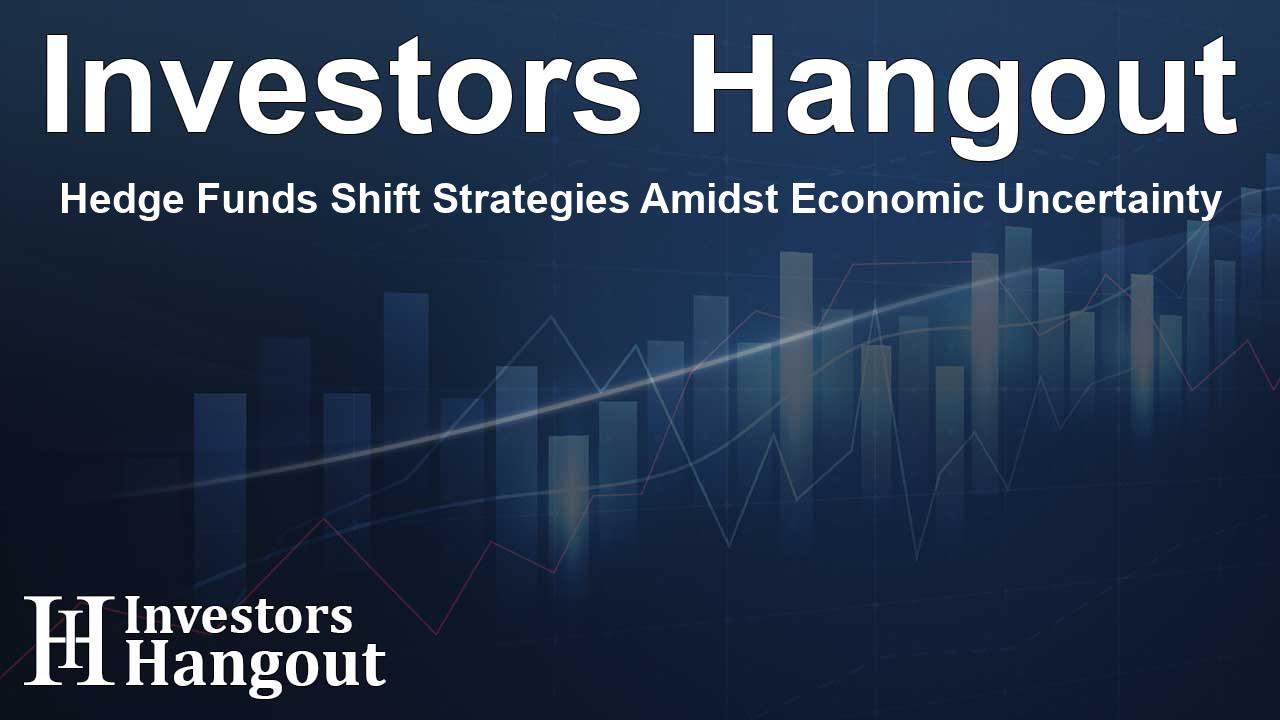Hedge Funds Shift Strategies Amidst Economic Uncertainty

Hedge Funds Adjust Their Approaches to Market Movements
Hedge funds have stepped back from their traditional strategy of buying dips as macroeconomic catalysts begin to shape the market landscape, according to recent insights from strategists at Barclays. This shift indicates a cautious approach from these investment channels as they navigate through potential market fluctuations.
Current Market Sentiment and Hedge Fund Activity
Despite seeing some recovery in equity markets last month, discretionary equity exposure among hedge funds has not rebounded to previous highs recorded before the de-risking events that took place in August. Although long-only funds are gradually rebuilding their positions, their equity exposure remains at levels comparable to the lows of 2020-2021, showcasing the current conservative stance of these investors.
Summer Risk-Off Period Observations
During the summer's risk-off phase, global macro and multi-strategy hedge funds actively positioned themselves as buyers. However, these funds have now taken a pause, reflecting a shift in market sentiment. This retreat may stem from near-term risks, including seasonal trends that historically prompt the S&P 500 to experience larger drawdowns in September and October.
Investor Caution Amidst Political Uncertainty
Adding to this caution is the ongoing uncertainty surrounding U.S. elections, which seems to be keeping many investors on the sidelines. Barclays analysts have noted that equity positioning does not appear excessively extended, suggesting that the equities market may still hold appealing opportunities, particularly as the year draws to a close and electoral uncertainties start to dissipate.
Positive Economic Indicators Supporting Market Optimism
Even with the equity markets reaching new heights, robust macroeconomic and earnings fundamentals continue to bolster confidence in these assets. There remains a growing sentiment surrounding a potential 'Goldilocks' scenario, where economic conditions are favorable and suggestive of a soft landing. This perspective is supported by favorable U.S. macroeconomic and labor data, alongside easing inflation rates and a decisive rate cut from the Federal Reserve.
Significant Employment Gains Boost Economic Confidence
Recent job market reports showcase an impressive growth trajectory, with nonfarm payrolls increasing by 254,000 in September, significantly surpassing expectations set at 150,000, and a revision from August indicating 159,000. Additionally, the unemployment rate experienced a slight drop to 4.1%, reinforcing the perception of a strong employment landscape, alleviating some investor apprehension regarding the overall economy.
Bond Market Sentiment Divergence
Contrasting with the optimistic view of equities is the positioning within the long bond market, which appears quite extended. This indicates that bond investors are approaching the economic outlook with skepticism, suggesting a divergence in sentiment between equity and bond investors.
Global Currency Movements and Speculative Investments
Apart from equities and bonds, the economic policies of central banks around the world are impacting investor behavior. Specifically, the contrasting monetary policies of the Bank of Japan and the Federal Reserve have led to increased bullishness among speculative investors regarding the Japanese yen.
As hedge funds and investors navigate these uncertain waters, the strategic shifts they take will undoubtedly play a pivotal role in shaping market dynamics. The current climate calls for adaptability and vigilance as various economic indicators continue to develop.
Frequently Asked Questions
What are hedge funds currently focused on?
Hedge funds are currently focused on reassessing their strategies in the wake of macroeconomic catalysts and political uncertainties, moving away from the dip-buying approach.
How has recent employment data impacted hedge fund sentiment?
The positive employment data showcasing job growth and a low unemployment rate has instilled confidence, although some investors remain cautious due to political uncertainties.
Why are investors hesitant to engage in equity markets now?
Investors are hesitant due to potential near-term risks, including historical seasonal trends that could lead to larger drawdowns and uncertainty related to the U.S. elections.
What is the outlook for equities as the year ends?
The outlook for equities may improve as uncertainties resolve, and a 'Goldilocks' scenario could become more favorable towards the end of the year.
How are bond investors reacting to current market conditions?
Bond investors appear skeptical about the economic outlook, as indicated by their extended positioning in long bonds, contrasting the more optimistic view of equity investors.
About Investors Hangout
Investors Hangout is a leading online stock forum for financial discussion and learning, offering a wide range of free tools and resources. It draws in traders of all levels, who exchange market knowledge, investigate trading tactics, and keep an eye on industry developments in real time. Featuring financial articles, stock message boards, quotes, charts, company profiles, and live news updates. Through cooperative learning and a wealth of informational resources, it helps users from novices creating their first portfolios to experts honing their techniques. Join Investors Hangout today: https://investorshangout.com/
Disclaimer: The content of this article is solely for general informational purposes only; it does not represent legal, financial, or investment advice. Investors Hangout does not offer financial advice; the author is not a licensed financial advisor. Consult a qualified advisor before making any financial or investment decisions based on this article. The author's interpretation of publicly available data shapes the opinions presented here; as a result, they should not be taken as advice to purchase, sell, or hold any securities mentioned or any other investments. The author does not guarantee the accuracy, completeness, or timeliness of any material, providing it "as is." Information and market conditions may change; past performance is not indicative of future outcomes. If any of the material offered here is inaccurate, please contact us for corrections.